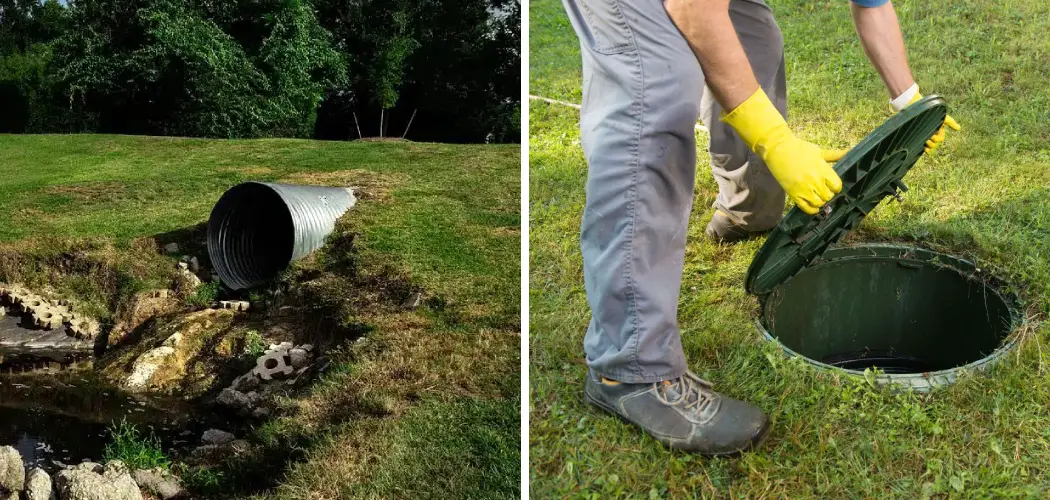A septic system is an essential waste management system in many households. It collects and treats wastewater and separates solid waste from liquid waste. If you have a septic system, knowing when it is not working correctly is critical.
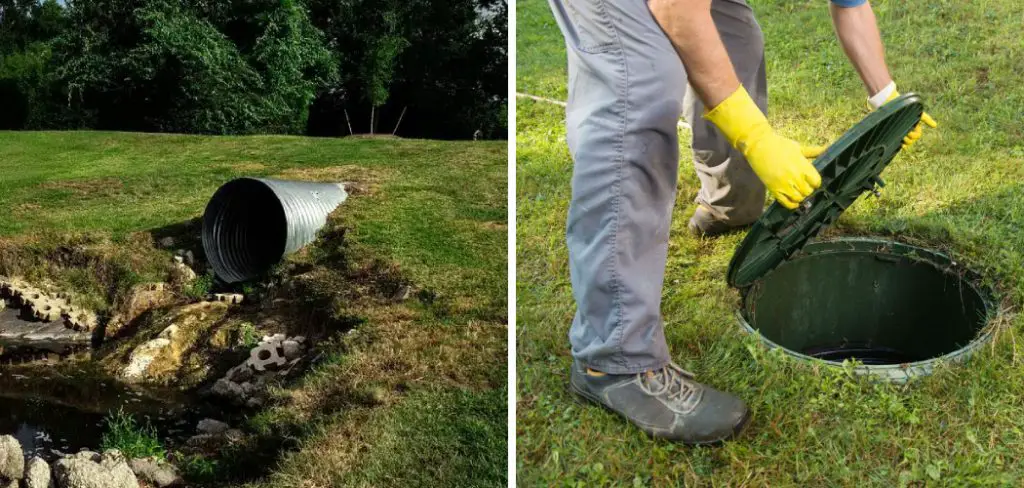
One of the most evident signs of a malfunctioning septic system is backups. Backups occur when wastewater fails to flow out of the system into the drain field. Though detecting and fixing the issue is challenging, this blog post will explore how to know if septic is backed up.
Why Is It Important to Know if Septic Is Backed Up?
The septic system is one of the essential components of our homes that often go unnoticed until it backs up. A septic backup can cause severe damage to your home, including flooding, foul odors, and groundwater and soil contamination. Knowing the signs of a backed-up septic system, like slow-draining sinks or toilets, gurgling noises, and foul odors, is essential.
It’s vital to take immediate action when you observe these signs, as delaying repairs can cause significant damage and expensive repairs. Regular septic system maintenance can help prevent backups and ensure your home remains clean and healthy. In conclusion, being aware of how your septic system functions, understanding its warning signs, and regular maintenance are key to avoiding serious problems and ensuring its optimal functionality.
The Ultimate Guide on How to Know if Septic Is Backed Up
1. Slow Drains
Slow-draining sinks, showers, and tubs are the most frequent signs of a septic backup. If the drainage system is not well-functioning, it prevents the wastewater from moving freely out of the septic. Over time, you may notice the water taking longer to flush down the toilet. Check whether the slow move is a localized or a widespread issue. If it is a localized issue, only one sink or drain has a problem. The septic system could be backed up if it is a widespread issue.
2. Foul Odors
Another common sign of septic backup is a bad odor. If your septic system malfunctions, it may produce a foul smell. The smell may come from drains, sinks, or the septic system. If you identify the smell coming out of drains and sinks only, it might be local plumbing issues. However, if you smell the rotten odor near the septic tank, it means it comes out of the septic system and requires immediate attention.

3. Standing Water
If you notice standing water around the septic system, it could signify a septic backup. The standing water could be around the septic tank, drain field, or the area between them. In case you find standing water in the yard, it is a sign that the septic system is not working correctly. Standing water around the septic system is a breeding ground for bacteria and other unhealthy organisms.
4. Gurgling Noises
Gurgling noises coming from the drains may be a sign that the septic system is full and is ready to overflow. Such sounds indicate that the system is experiencing pressure and the water has nowhere else to go. Gurgling noises coming from the drains are usually a sign of blockage, and you must seek immediate help from a professional.
5. Septic Pumping Time
As a rule of thumb, you must pump your septic tank every two to three years. If you don’t remember when you last got your septic system pumped, this might be a good starting point. Delaying the process may lead to unpleasant surprises, costing more money in repairs or replacement. If you have a large family or use more water than average, you might need to pump your tank more frequently.
6. High Water Levels
If the septic system is backed up, this may cause the water levels in the toilet bowl to rise higher than usual after flushing. However, high water levels could also indicate other plumbing issues, so it’s essential to check for other signs as well.

7. Wet Spots in the Yard
In addition to standing water, wet spots in your yard could also be a sign of septic backup. These wet spots are caused by sewage leaking from the septic tank or drain field and can pose a health hazard if not addressed immediately. If you notice any wet spots in your yard, contact a professional to inspect the septic system and resolve the issue promptly.
Now that you know what signs to watch, it’s essential to take action if you suspect a septic backup. Ignoring these signs can lead to more significant problems and costly repairs in the future. Regular maintenance and proper septic system care can prevent backups and keep your home’s plumbing functioning correctly. If you notice any of the signs mentioned above, don’t hesitate to contact a professional for help.
5 Considerations Things When You Need to Know if Septic Is Backed Up
1. Signs of a Backed-up Septic System
The most obvious sign of a backed-up septic system is slow or no drainage in the home. If you notice that water is not draining properly from sinks, toilets, showers, and other fixtures, it could be a sign that your septic system is backed up. Additionally, if you notice an unpleasant odor coming from drains or near the septic tank, this could also be a sign of a clog or blockage.
2. Causes of Septic System Backups
There are several potential causes of septic system backups. Common causes include tree roots growing into the pipes, foreign objects such as toys or sanitary products being flushed down the toilet, and too much soap or detergent being used in washing machines. Additionally, if the septic tank is not pumped regularly (every 2-3 years), solids can build up and cause a backup.
3. How to Prevent Septic System Backups
The best way to prevent septic system backups is to have your tank pumped regularly and inspected for any signs of damage or clogs. Additionally, it’s important to avoid flushing anything other than human waste and toilet paper down the toilet and to use only biodegradable soaps and detergents in washing machines. Finally, keeping trees away from the septic tank is important as their roots can cause serious damage if they grow into the pipes.
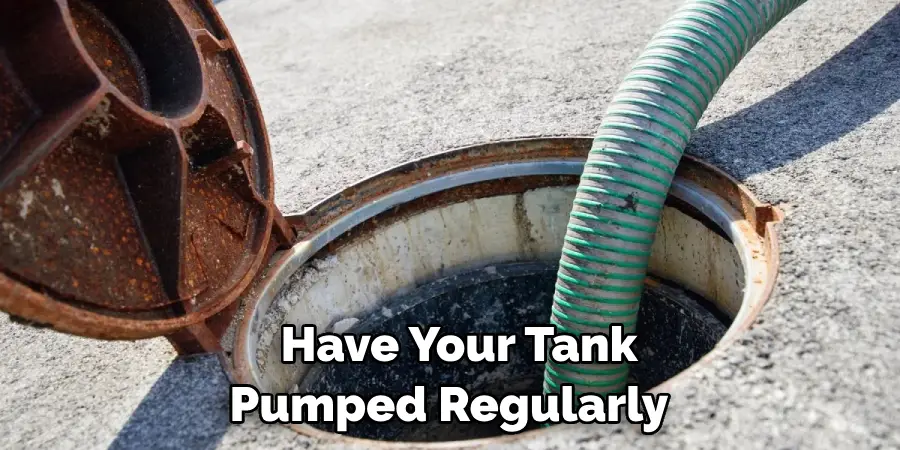
4. What To Do If Your Septic Is Backed Up
If you suspect that your septic system is backed up, it’s important to act quickly to prevent further damage and costly repairs. The first step is to call a professional plumber specializing in septic systems to help diagnose and repair the issue. The plumber will be able to determine what is causing the backup and provide advice on how best to address it.
5. Cost of Repairing A Septic System Backup
The cost of repairing a backed-up septic system will vary depending on the severity of the problem and what needs to be done to fix it. Generally speaking, minor repairs such as unclogging pipes or removing tree roots can range from $200-$500, while more extensive repairs such as replacing broken pipes may cost upwards of $1000 or more depending on how much work needs to be done.
5 Benefits of Know if Septic Is Backed Up
1. Avoid Health Hazards
One of the most important reasons to know if your septic is backed up is that it can help you avoid health hazards. If your septic tank is overflowing, it can cause raw sewage to back up into your home, creating a serious health hazard for you and your family. Knowing if your septic tank is backed up can help you take steps to prevent this from happening.
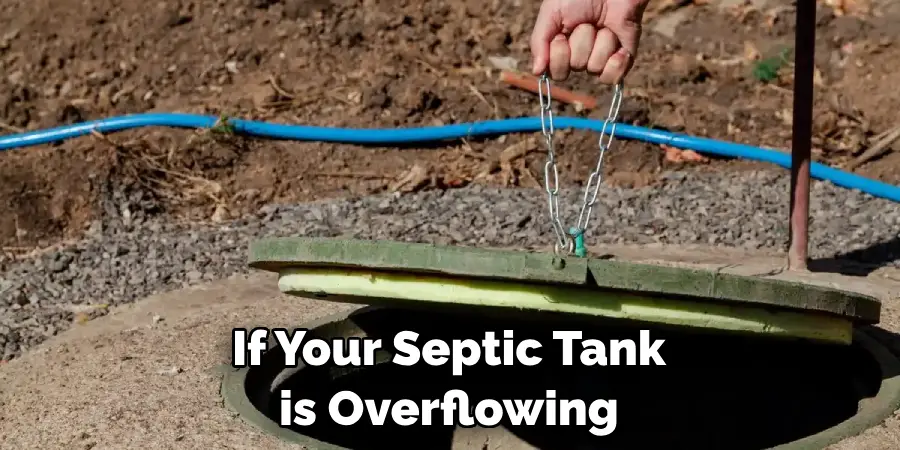
2. Prevent Damage to Your Home
Another reason to know if your septic tank is backed up is that it can help you prevent damage to your home. If the tank overflows, it can cause water damage in your basement or other areas of the house, which can be very costly to repair. Knowing if the tank is backed up can help you take steps to prevent this from happening.
3. Save Money on Repairs
Knowing if your septic tank is backed up can also save you money on repairs in the long run. If the problem isn’t addressed quickly, it could lead to more severe problems down the line that may require more extensive and expensive repairs. By catching the problem early, you can save yourself time and money in the future.
4. Reduce Environmental Impact
Another benefit of knowing if your septic tank is backed up is that it helps reduce environmental impact. When a septic system overflows, it causes raw sewage to enter nearby bodies of water, which can be harmful to wildlife and people who use those waters for recreation or drinking water supply. By addressing any issues with your system quickly, you can help protect local ecosystems from contamination.
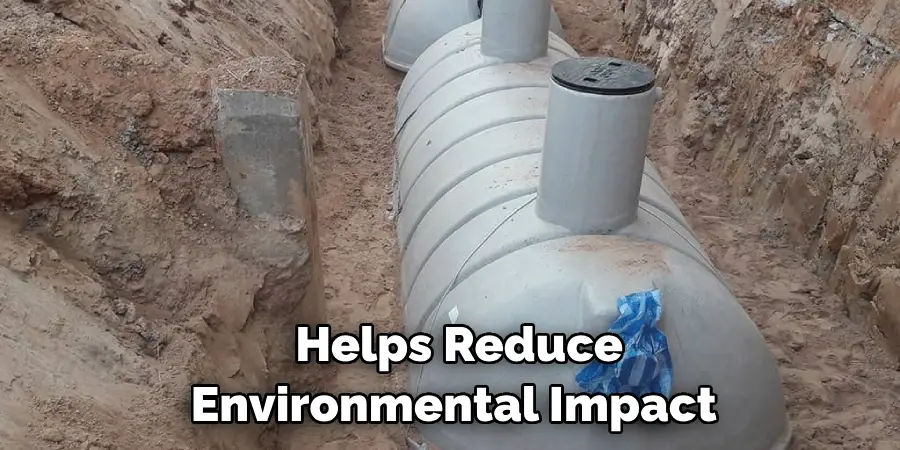
5. Maintain Proper Functioning
Finally, knowing if your septic tank is backed up helps maintain the system’s proper functioning overall. Regularly checking for signs of a backup allows you to catch small problems before they become larger ones and ensures that everything continues running smoothly over time without any major issues arising.
Some Common Mistakes People Make When Trying to Know if Septic Is Backed Up
Septic system backups can be messy and costly to fix. Unfortunately, many homeowners make common mistakes when determining whether their septic system is backed up. One of the most common mistakes is assuming that smells automatically indicate a backup. While smells can indicate a septic problem, they do not always indicate a backup.

Another mistake is overusing and flushing the system with harsh chemicals. This can actually harm the beneficial bacteria that help break down waste in the septic tank, leading to clogs and backups. Lastly, some homeowners ignore warning signs such as slow flushing toilets or drains, which can eventually lead to a complete backup. By avoiding these common mistakes, homeowners can keep their septic systems running smoothly and avoid costly repairs.
Conclusion
In conclusion, a septic system is a critical component of most homes. A malfunctioning septic system could lead to backups and unpleasant inconveniences. Regular maintenance, examination, and understanding of how the system operates are essential to avoiding septic backups.
Identifying any of the signs mentioned will help you know when your septic system is backing up; therefore, getting immediate help from professionals is crucial. Always stay on top of your septic system, and give it the attention it deserves. Thanks for reading our post about how to know if septic is backed up.

